Have you ever noticed your cat’s eyes appear larger than usual? If so, you may have observed dilated pupils. But what does this mean for your feline friend? In this article, we will delve into the world of cat eye health and explore the possible reasons for dilated pupils in cats.
What To Do If Your Cat’s Eyes Are Dilated
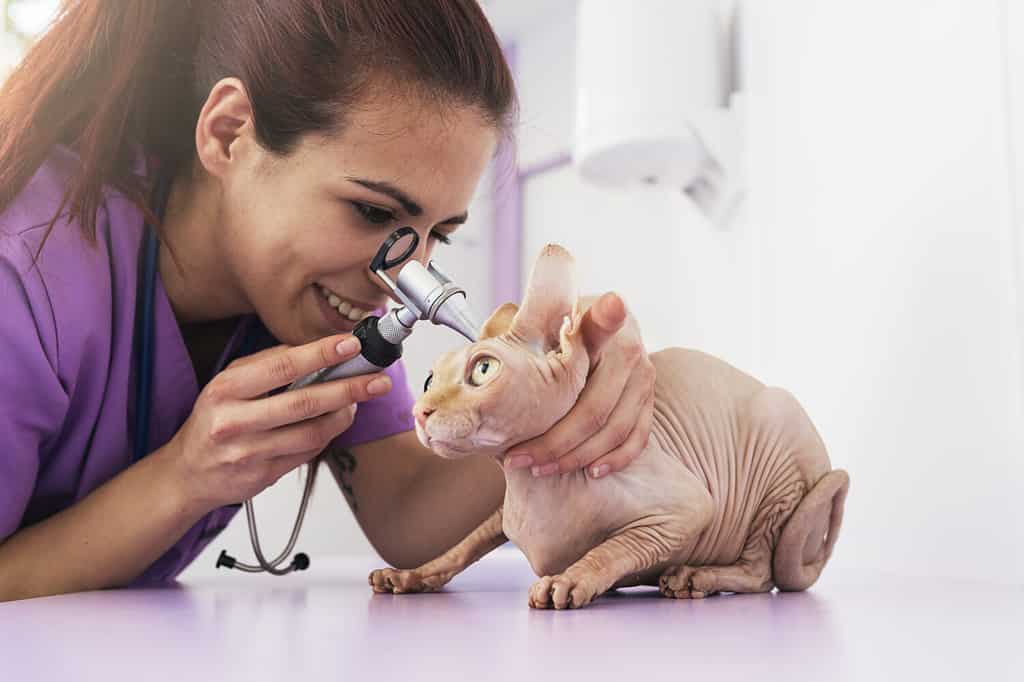
If you are unsure of the cause of your cat’s eye dilation, see a veterinarian.
©santypan/Shutterstock.com
It’s not usually serious when a cat’s pupils are dilated. But, if there are additional signs of illness or health issues, it’s important to get them checked out by a vet. It may be concerning to new cat owners when their cat’s eyes rapidly change. But it is normal for their pupils to constrict and dilate multiple times in a day. Knowing what situations usually cause pupil dilation can help owners recognize when a vet visit is necessary. As always, when in doubt, schedule a vet visit. It is better safe than sorry when it comes to your beloved companion’s health.
10 Causes of Dilated Pupils in Cats
Cats are curious creatures and can be prone to various health issues. One of the symptoms of health issues in cats is dilated pupils. Dilated pupils, also known as mydriasis, is a condition in which the pupils of the eye become abnormally large. When a cat’s pupils are dilated, it can be a sign of a serious medical condition or simply a reaction to a stimulus. Here are the serious and not-so-serious causes of eye dilation in cats.
Playing and Pouncing
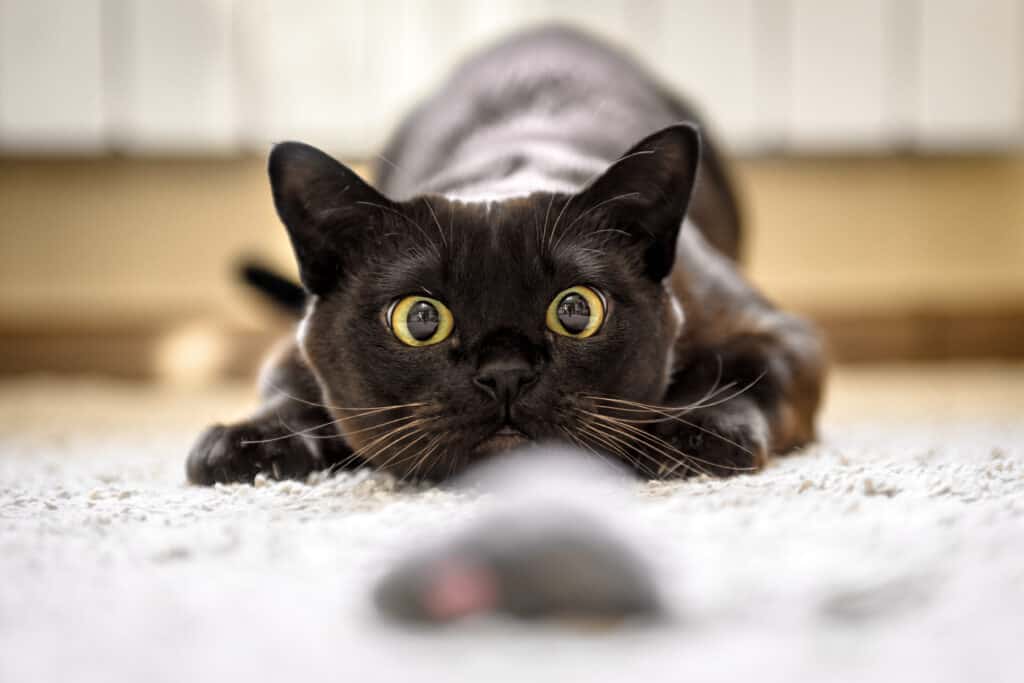
Dilated pupils are common when cats are pouncing and pretend hunting with their toys.
©Viacheslav Lopatin/Shutterstock.com
Playing and pouncing are two common reasons for cats having dilated pupils. When cats are pretending to hunt, they dilate their pupils to let as much light as possible into their eyes. This helps them to detect movement and potential prey easier. Dilation of the pupils also happens when cats are excited or scared. It helps them to take in more of the environment around them and search for potential threats. When cats are playing, they dilate their pupils to become more alert and focused on the task at hand. Pupil dilation is a natural response in cats and should not be cause for alarm unless it is persistent or accompanied by other symptoms.
Low Lighting
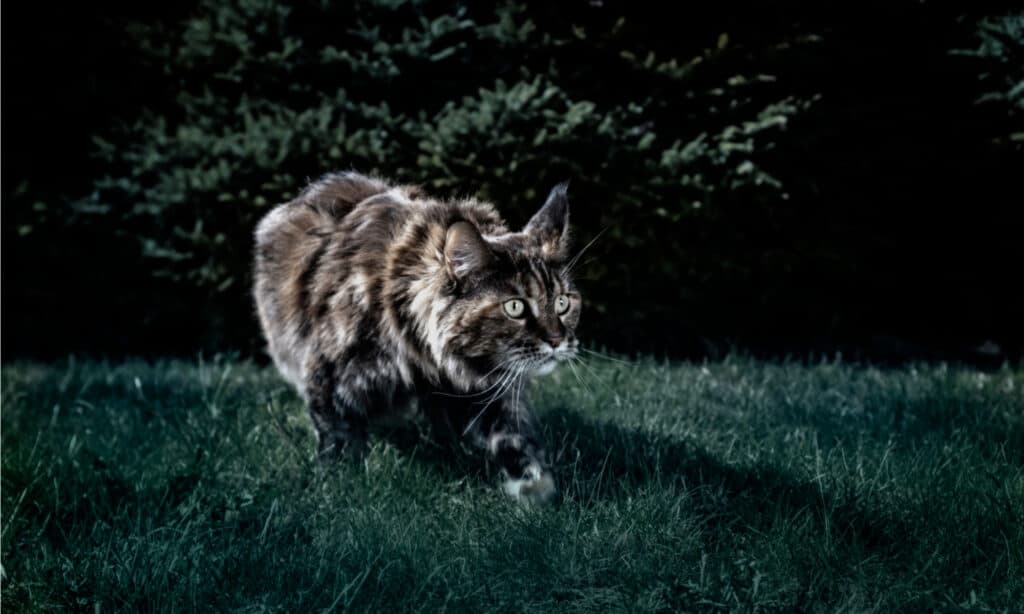
Cats are able to dilate their pupils when they hunt at night to increase their night vision.
©Konstantin Zaykov/Shutterstock.com
Low lighting is a common cause of eye dilation in cats. It is normal for their eyes to look wide when the lights are dim, much like humans. This happens because, in dim lighting, a cat’s pupils naturally open wider to allow more light into the eyes. This is a protective mechanism for cats to sharpen their vision in low light.
In well-lit environments, cats’ pupils remain relatively small as the amount of light entering their eyes is sufficient. However, when cats are exposed to low light, their pupils open wide. This reaction allows for better vision and protects their eyes from bright light.
Excitement
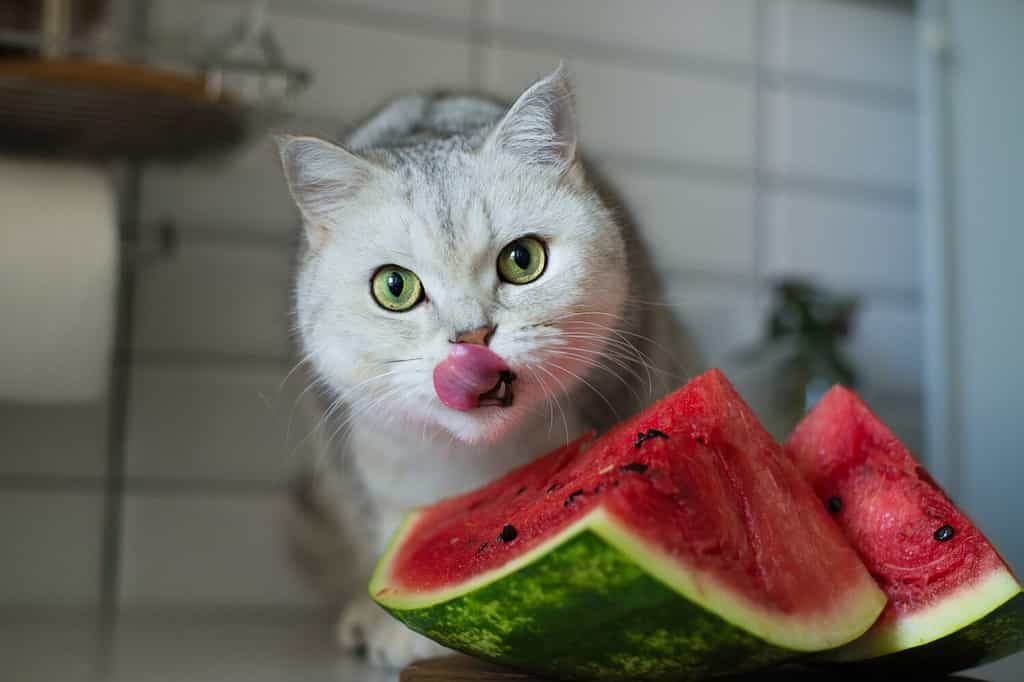
If a cat gets excited by a special treat, game, or something they see out the window, their eyes can dilate.
©Skarynka Alena/Shutterstock.com
Pupil dilation in cats is a normal response to excitement. Whether they’re thrilled for dinner time or receiving a special treat, their eyes may begin to dilate. But there’s no need to worry – this is a perfectly normal reaction! Cats are naturally expressive creatures, and they use their eyes to communicate their feelings. So when their pupils dilate in response to something exciting, it’s simply a sign that they’re feeling joy and anticipation.
It’s important to remember that this is a natural response for cats and not something you have to worry about. Cats love to feel loved and engaged, so use this as an opportunity to give them extra attention. Whether it’s playing a game of chase or giving them a special treat, your cat will be sure to appreciate it!
Fear and Anxiety
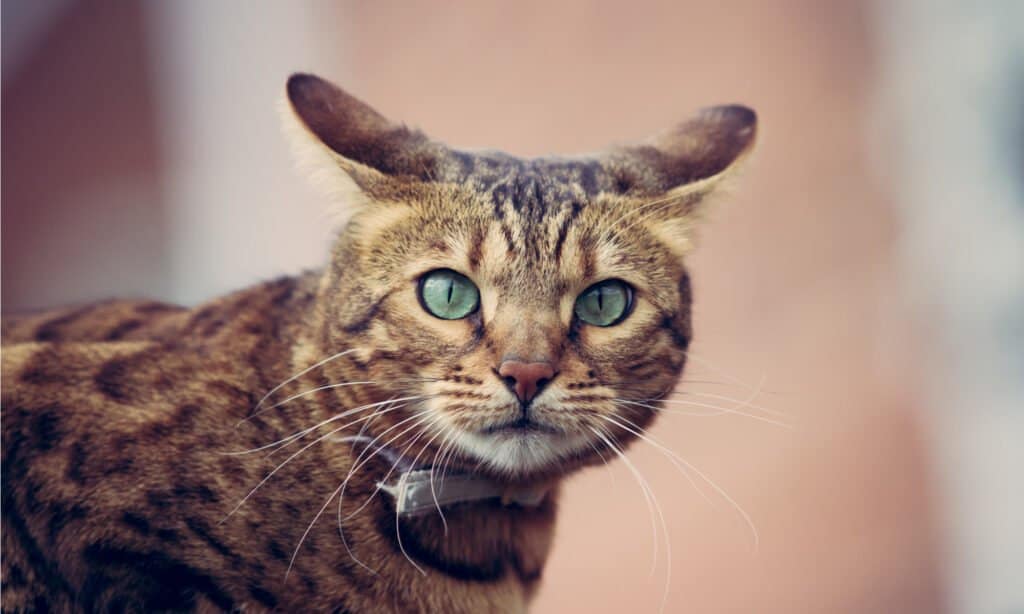
Anxiety or fear can cause eye dilation in cats. If it happens often, your cat may have an anxiety disorder.
©Clare Louise Jackson/Shutterstock.com
Fear and anxiety can cause a cat’s eyes to dilate. This is the body’s natural response to feeling scared or threatened. When a cat is startled by something, their pupils will quickly dilate before returning to their normal size.
If the cat is showing signs of anxiety more than occasionally, it is important to consult a veterinarian for treatment. Anxiety can have serious and long-lasting effects on cats, and the sooner you address it, the better the outcome. There are numerous treatments available, ranging from behavior modification to medication. The key is to identify the source of the fear or anxiety and create a plan to address it. Taking the time to do this will help ensure the cat’s overall well-being.
Pain and Dilated Pupils in Cats
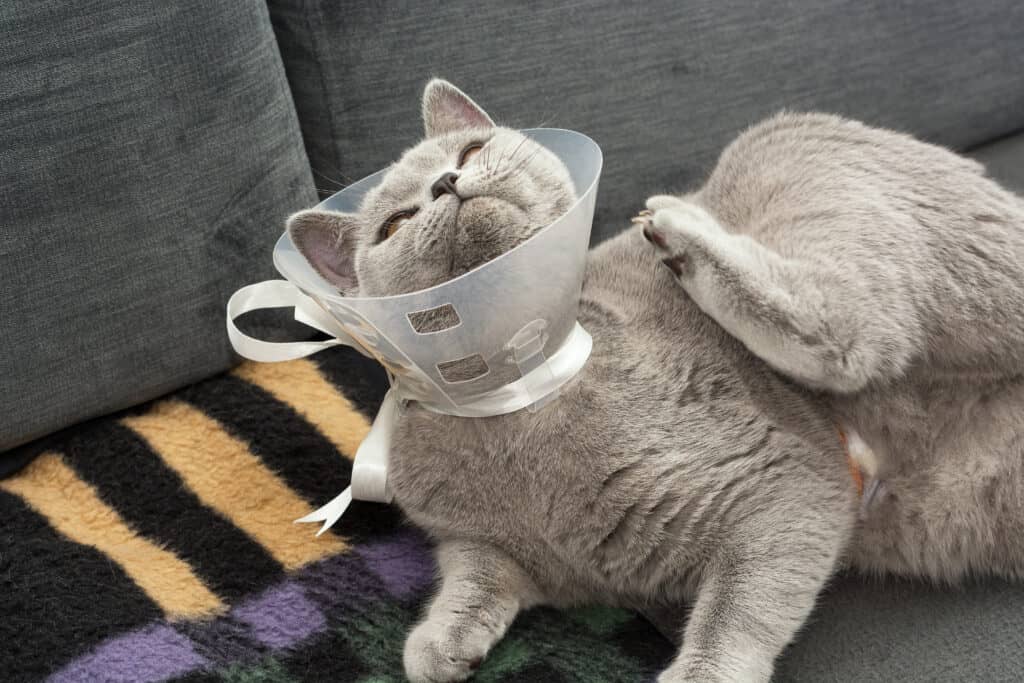
A cat with an injury or one who is experiencing pain can show dilated pupils.
©Lilia Solonari/Shutterstock.com
Pain can be a cause of dilated pupils in cats, even when the pain is mild. It is important to observe your cat for other signs that she may be in pain, such as hiding, drooling, excessive licking, aggression, or vocalizing. If you suspect your cat is in pain, take her to the vet for an examination.
In addition to dilated pupils, other signs of pain in cats may include changes in behavior, such as not wanting to be touched, becoming more vocal, or being less active than usual. Other signs of pain may include changes in eating or drinking habits, changes in body posture, or changes in sleeping patterns.
High Blood Pressure
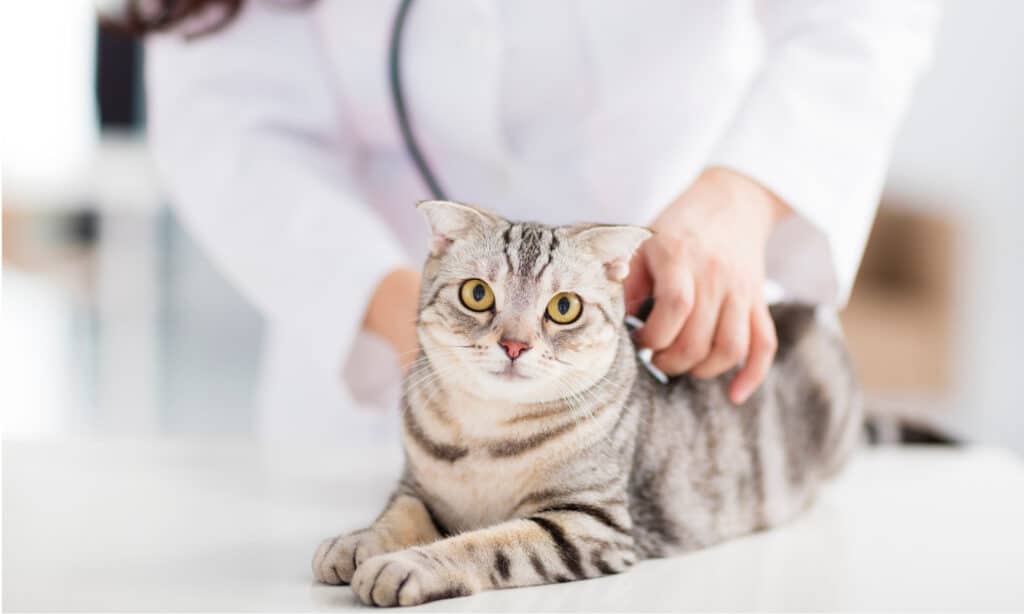
Take your cat to the veterinarian immediately if you suspect high blood pressure.
©iStock.com/Tomwang112
High blood pressure can be a very serious cause of dilated pupils in cats, especially if it does not go away after a period of time. If your cat has dilated pupils that do not seem to be getting better, take them to the vet to get checked for high blood pressure. It is important to identify this condition early, as it can be serious if left untreated.
Once diagnosed, your vet may prescribe medication to help regulate the high blood pressure and return the pupils to their normal size. It is important to follow the instructions given by your vet and keep an eye out for any changes in your cat’s condition. With the right treatment, high blood pressure can be managed, and your cat can return to a healthy and happy life.
Vision Issues
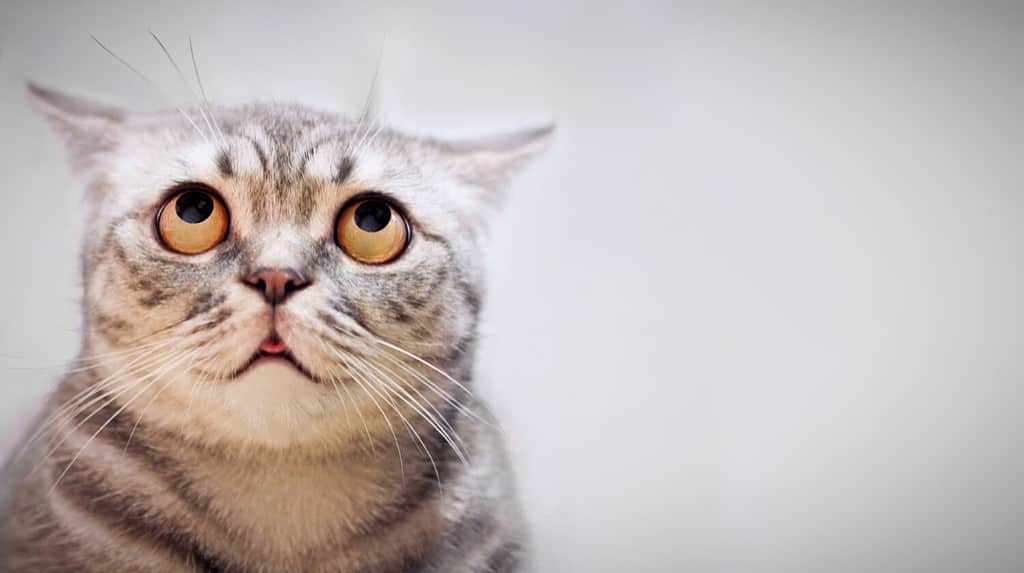
Cats who are experiencing vision issues can have dilated pupils and need to see a doctor.
©SakSa/Shutterstock.com
Cats with blurry vision or who are blind in one or both eyes may exhibit dilated pupils. This is a natural response for cats experiencing vision loss. However, if pupil dilation occurs suddenly, it could be a sign of a serious underlying health problem. It is important to have your cat checked by a vet right away if you suspect any vision issues.
In addition to dilated pupils, other signs of vision issues in cats may include bumping into objects, not recognizing familiar people or animals, and disorientation. Low vision can cause difficulty with navigating, and blindness can lead to a complete lack of vision. It is important to take your cat to the vet if you notice any changes in vision or pupil dilation to ensure that she is healthy and safe.
Glaucoma
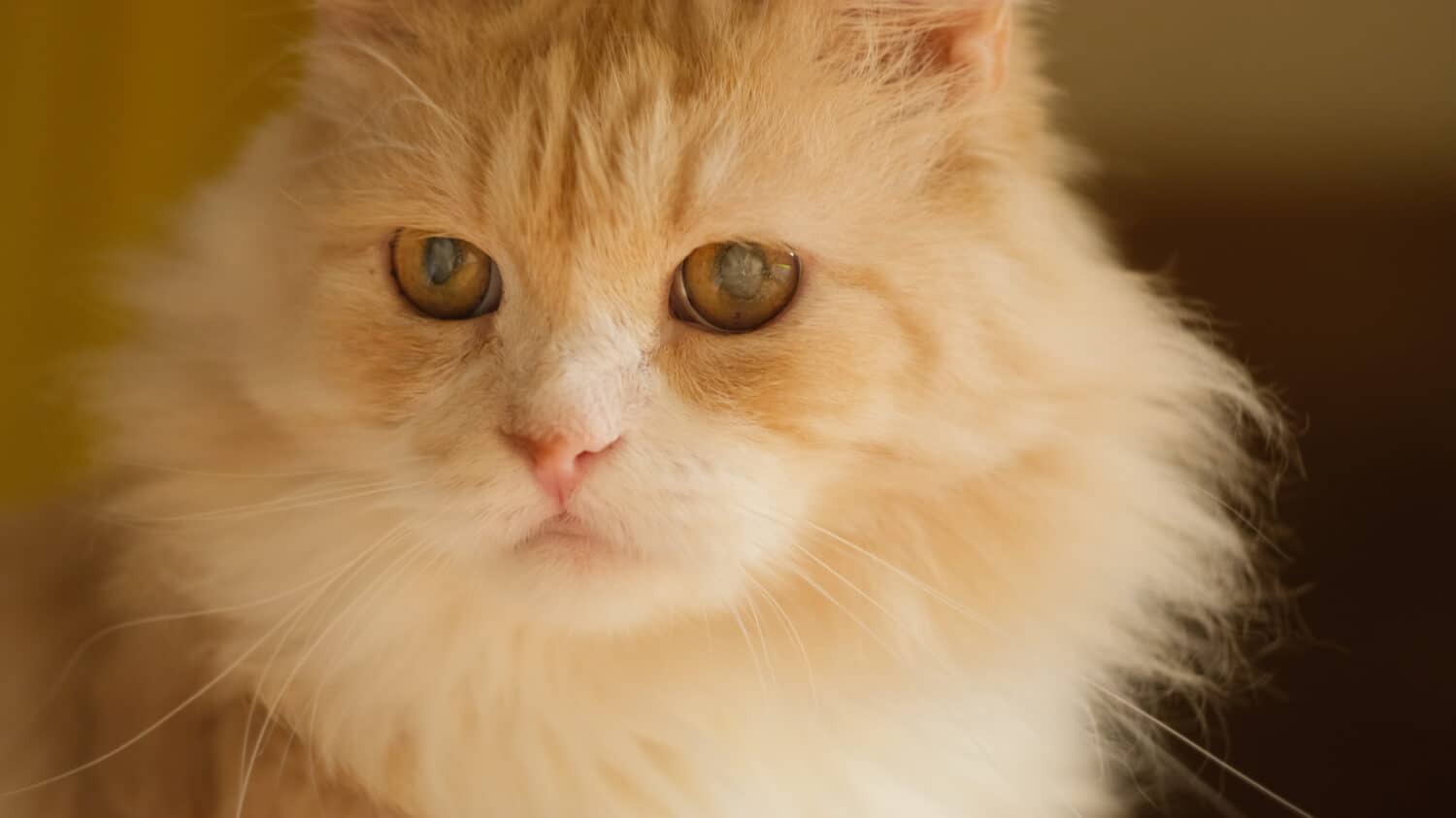
Cats can get glaucoma and cataracts. There are excellent treatments available if you act fast.
©Meteoritka/Shutterstock.com
Glaucoma is a condition that can cause dilated pupils in cats, even those that are young. If your cat’s pupils have been dilated for long periods of time, see a vet as soon as possible in order to try to preserve their vision.
It’s important to be aware of the signs of glaucoma in cats. Be alert to increased tear production, eye discomfort, cloudiness of the eye, and redness in the eyes. If you observe these signs, consult a vet as soon as possible. Treatment options may include prescribed drops or surgery, depending on the severity of the condition. If caught early enough, glaucoma can be managed so that your cat can maintain their vision.
Cancer
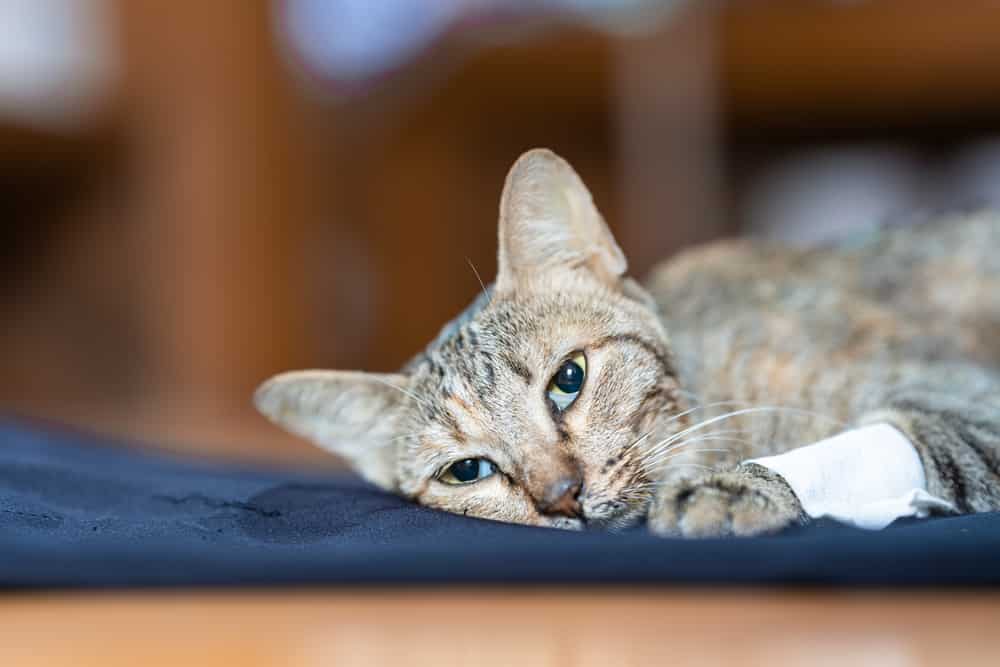
There are a wide assortment of treatments available for cats with cancer.
©Oporty786/Shutterstock.com
Cancer can be a cause of dilated pupils in cats. If your cat begins to show signs of cancer, such as sudden weight loss, lethargy, and weakness, as well as dilated pupils, it is important to take her to the vet for a complete diagnosis.
Early detection and treatment of cancer in cats can greatly improve the prognosis and chances of survival. Dilated pupils can be a sign of many other illnesses as well, so it is important to take your cat to the vet for a full evaluation. Regular checkups can help detect any early signs of cancer, so be sure to keep up with your cat’s annual checkups.
Brain Injury
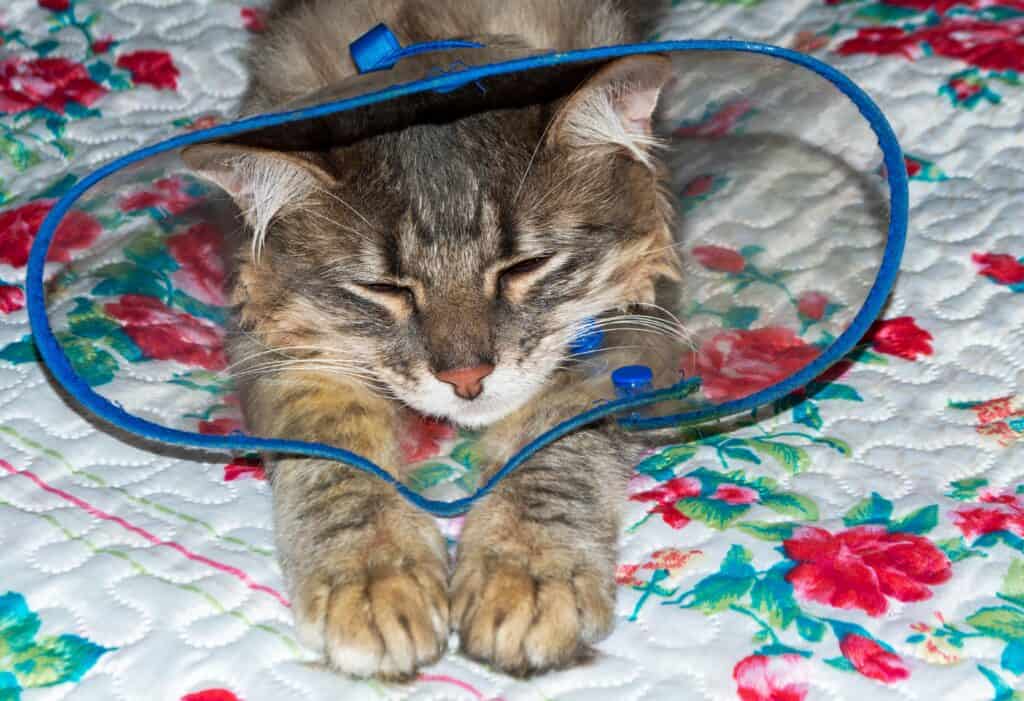
Brain injuries are one of the less common reasons for dilated pupils in cats.
©Edson Michalick/Shutterstock.com
Although rare, brain injury can sometimes lead to pupil dilation in cats. If your cat has recently experienced a fall, was hit by a car, or was attacked by a larger animal, a brain injury could be the cause of this symptom.
It is important to take your cat to the vet for an evaluation if you suspect that it may have suffered a brain injury. A physical exam and a neurological exam can help to determine the cause of pupil dilation and provide the best course of treatment.
Brain injury can have a wide range of symptoms, including seizures, confusion, and behavioral changes, so it is important to be aware of these signs and seek medical care if you think your cat may have suffered a brain injury.
The photo featured at the top of this post is © PHOTOCREO Michal Bednarek/Shutterstock.com
Thank you for reading! Have some feedback for us? Contact the AZ Animals editorial team.







